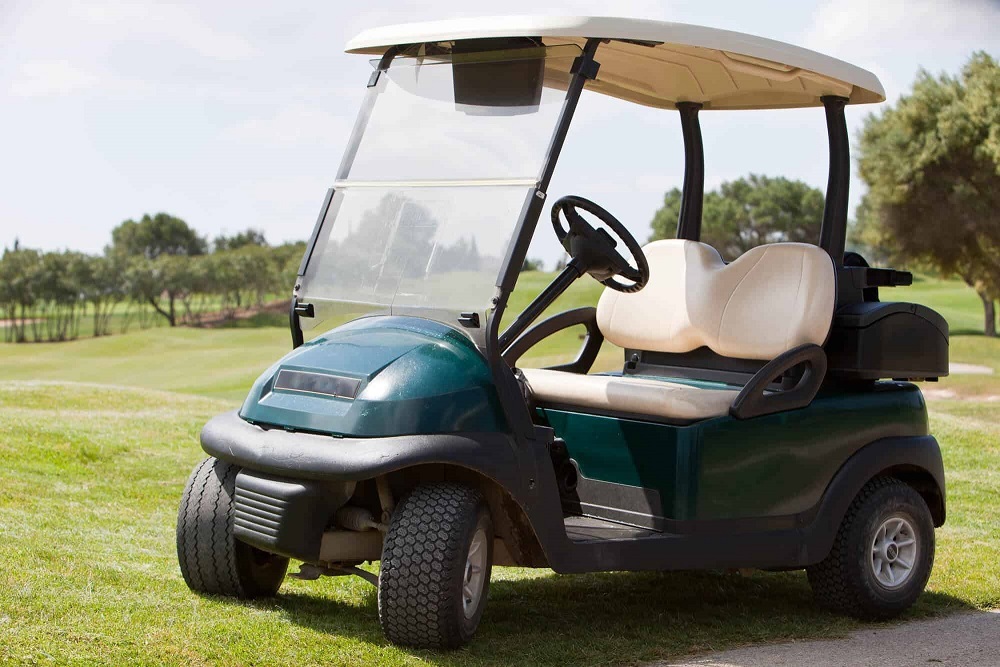FRANKFORT, Ky. (Legal Newsline) - A Kentucky golf course isn’t liable for an accident that occurred after a golfer swerved to avoid an overturned cart and rolled his own vehicle on top of himself, an appeals court ruled.
Mark Joseph Smith sued Heritage Hill Golf Club, accusing it of operating a defectively designed golf course, after he was injured trying to drive away from the second hole. A golfer in a separate cart in front of him failed to negotiate an S-curve lined with dense foliage and rocks, flipping his cart on top of himself.
Smith and a passenger were following in their own cart when they came across the accident. To avoid a collision, Smith veered off the cart path and flipped. His passenger jumped free of the cart but it rolled on top of smith, breaking his arm at the shoulder socket.
Smith sued Heritage Hill, the other cart driver and his car insurance in 2011. The golf course moved for summary judgment in December 2013, arguing Smith failed to produce an expert opinion to support his claims the design of the golf course was defective. (He also claimed the golf cart was defective, but didn’t sue the cart manufacturer).
The trial court rejected Heritage Hill’s motion to dismiss and Smith designated an expert witness, Stephen Eisenberg. The golf course then spent a year trying to question Eisenberg in a pretrial deposition. When it finally succeeded in February 2017, Eisenberg failed to produce the documents he relied upon to form his opinion. Heritage Hill again moved to dismiss the case. The trial judge refused, but in May 2018 struck Eisenberg as an expert witness.
Smith hired Charles Heath as his new witness in January 2019. But the court granted summary judgment in six months later after a hearing in which Heath acknowledged he never visited the golf course or inspected the supposedly defective cart and based his report largely upon Eisenberg’s prior work.
On appeal, Smith argued the trial court overstepped its authority by striking Heath’s expert opinion and dismissing his case. But the Kentucky Court of Appeals affirmed the dismissal in an Oct. 15 decision.
The appeals court quickly dispensed with Smith’s claim that the club’s golf carts were defective. Neither Smith nor his expert ever inspected Buehner’s cart, the appeals court ruled, and the plaintiff needed to introduce enough evidence to allow a reasonable conclusion the club more likely than not was responsible for the accident.
“There is not one shred of evidence in this record to implicate a defect” in the cart’s brake, the court ruled. “Mere speculation and conjecture about an alleged defect, including the alleged lack of an `auto deceleration feature,’ do not create a genuine issue of material fact in this case.”
A harder question is whether the trial judge could dismiss the claim the golf course was negligently designed. While judges clearly have the power to require expert witnesses to testify about subjects like medical standards of care that are outside the common experience of lay jurors, the appeals court said, it isn’t clear whether golf course design fits that definition. But Smith failed to raise the question at the trial level or on appeal, so the appeals court declined to make a decision.
Finally, the court said Smith’s claim was akin to a premises liability lawsuit. Heritage Hill argued any defect in the course’s design was open and obvious, the appeals court noted. The Kentucky Supreme Court loosened its open and obvious standard with the 2010 decision Kentucky River Medical Center v. McIntosh, however, making property owners potentially liable for obvious hazards if it can be anticipated visitors might be distracted into ignoring them, or perhaps enticed to risk injury because they don’t understand the true danger.
Judges can still dismiss cases under the open-and-obvious doctrine if there is no way a reasonable juror could conclude the property owner breached a duty of care, the court said. In this case unrefuted evidence establishes Smith intentionally swerved to avoid hitting Buehner’s overturned golf cart and there is no evidence the course was defectively designed, the appeals court concluded.
